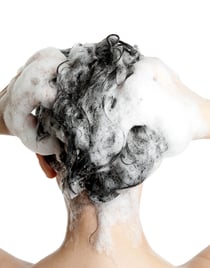What is Toxic?
Did you know that many of the 1,700 cancer-causing, hormone disrupting, and allergy-inducing substances that have been banned or restricted in European personal care products are still used in Canadian products? According to the U.S. National Institute of Occupational Safety and Health there are over 800 toxic chemicals in personal care products! In Canada there is no requirement to reveal what is in the bottles. We put these products on to our skin (the largest organ), where they get absorbed into our bodies!
Is there any surprise we are getting increasingly more ill?
Don't be a victim; take charge of your health. Book a consulation now.
Perfumes & Colognes

There is a good reason hospitals and other public buildings are banning perfumes: most are made with chemicals potentially harmful to human health.
Once upon a time all perfumes were made from plants. For thousands of years perfumes were produced by distilling plants such as rose buds. Today these are commonly called "essential oils." If pure they rarely cause any allergic reactions, and many are prized for their health-promoting abilities.
We can suggest perfumes that make you smell wonderful, and feel good, without making people want to ban you! Consult with us, for free!
Soaps & Shampoos

Having clean hair and a clean body is wonderful. Adding toxins to one's scalp and skin at the same time is not!
If you can't pronounce the ingredients in your shampoo then consider healthier alternatives. And get that clean feeling without any unwelcomed guests!
Many liquid hand soaps also contain chemicals of uncertain safety, especially "anti-bacterial" varieties (which can contain a pesticide!).
Why add toxins to your largest organ (the skin)? See what others experience when using pure soaps that contain pure essential oils!

 Shore Wellness Solutions Nanaimo BC
Shore Wellness Solutions Nanaimo BC

